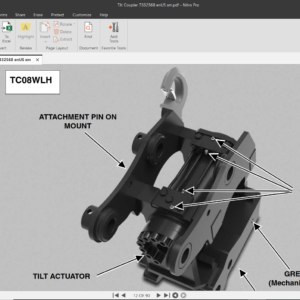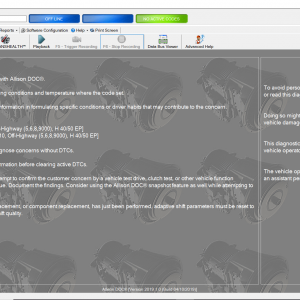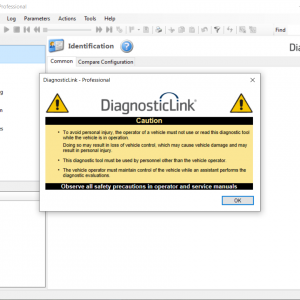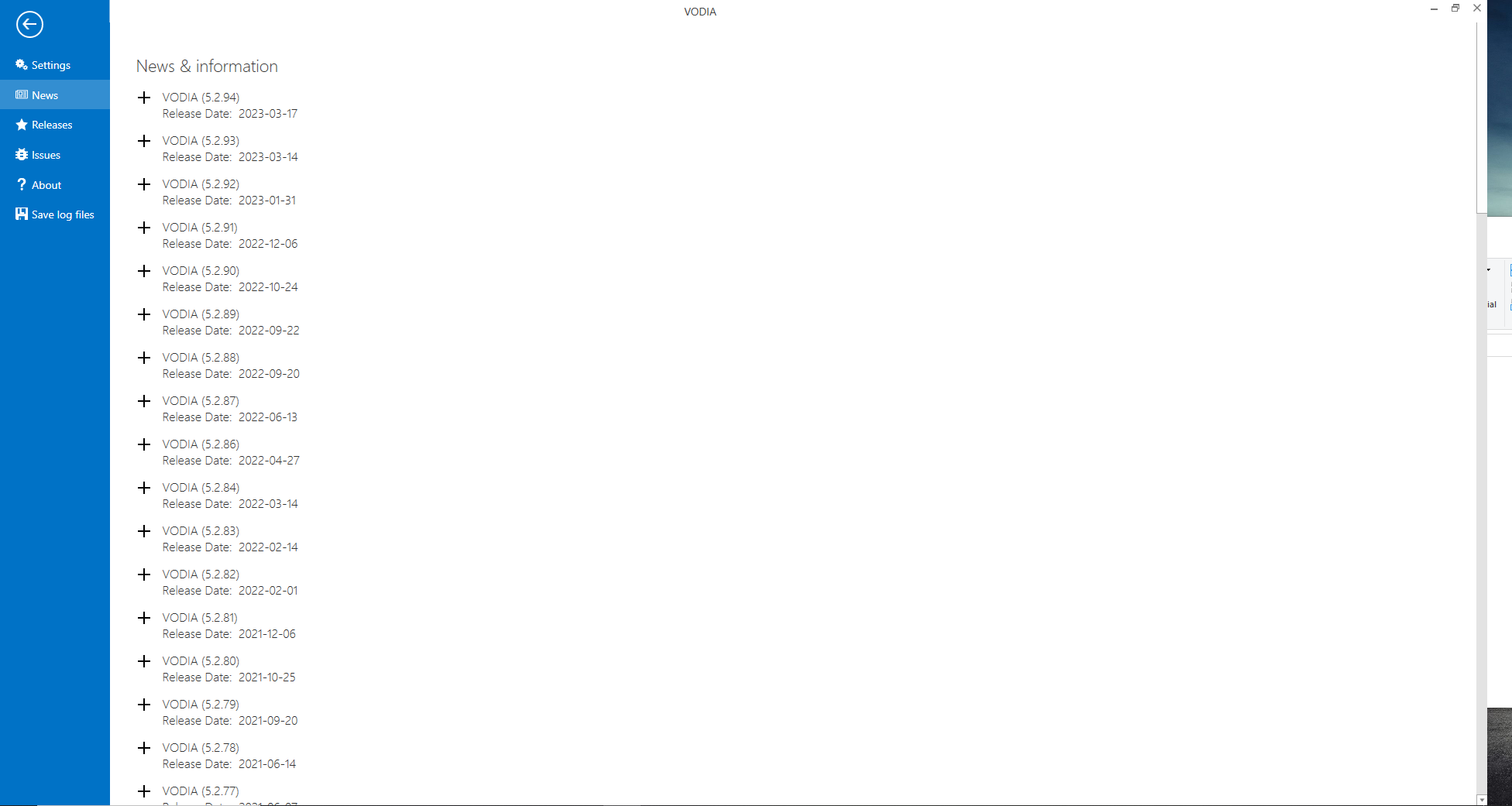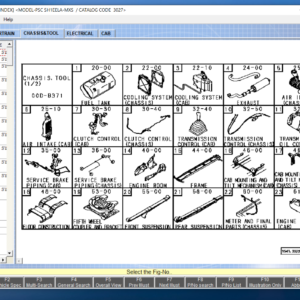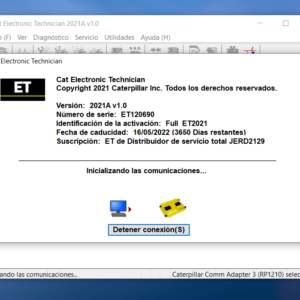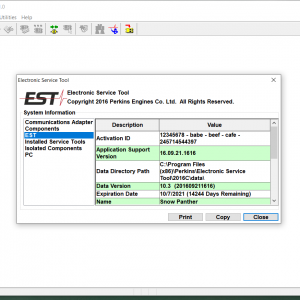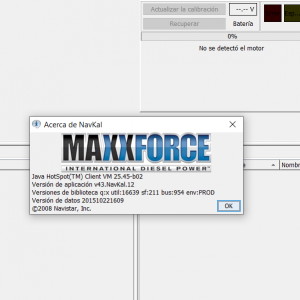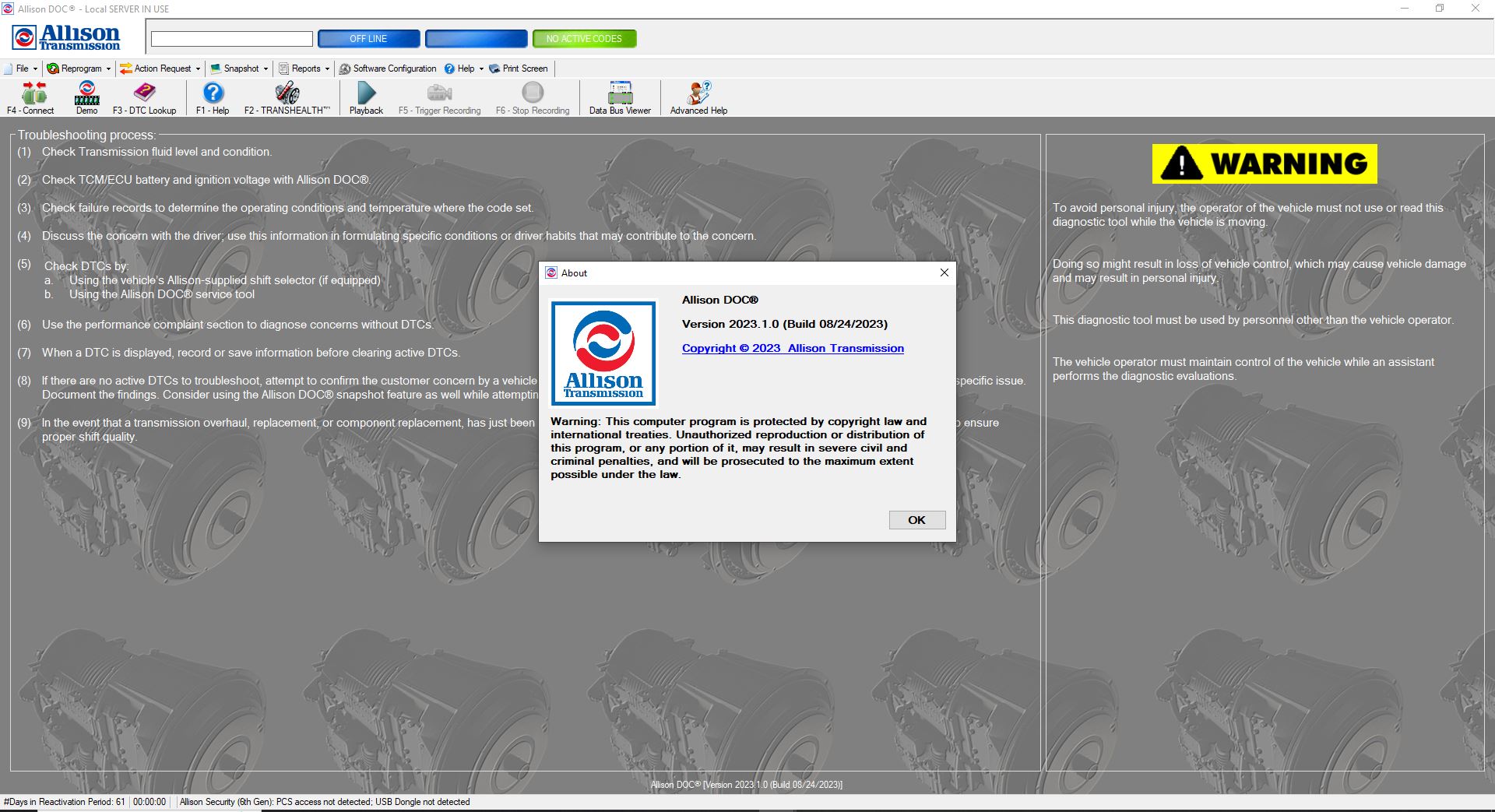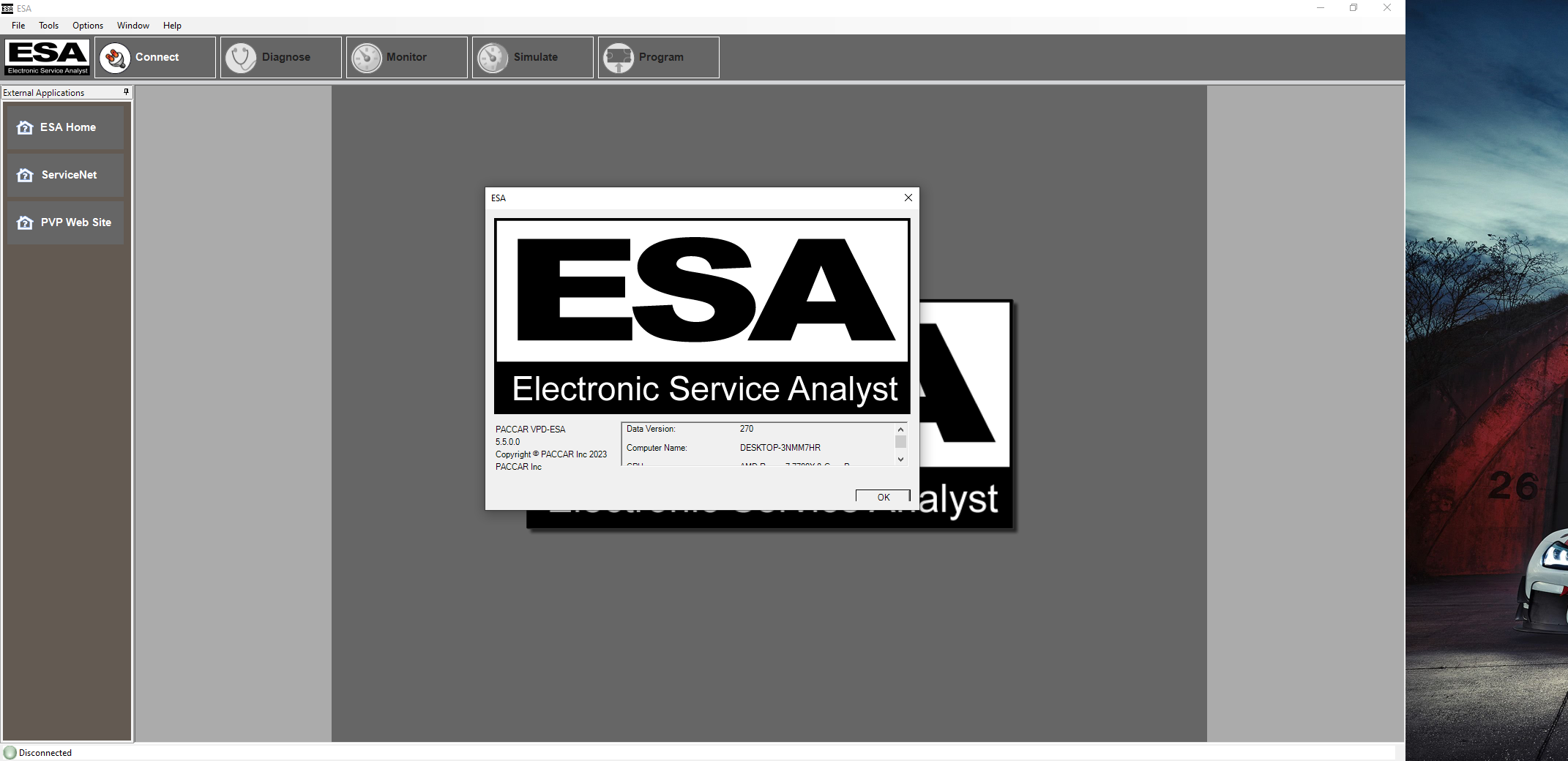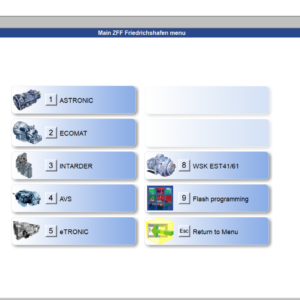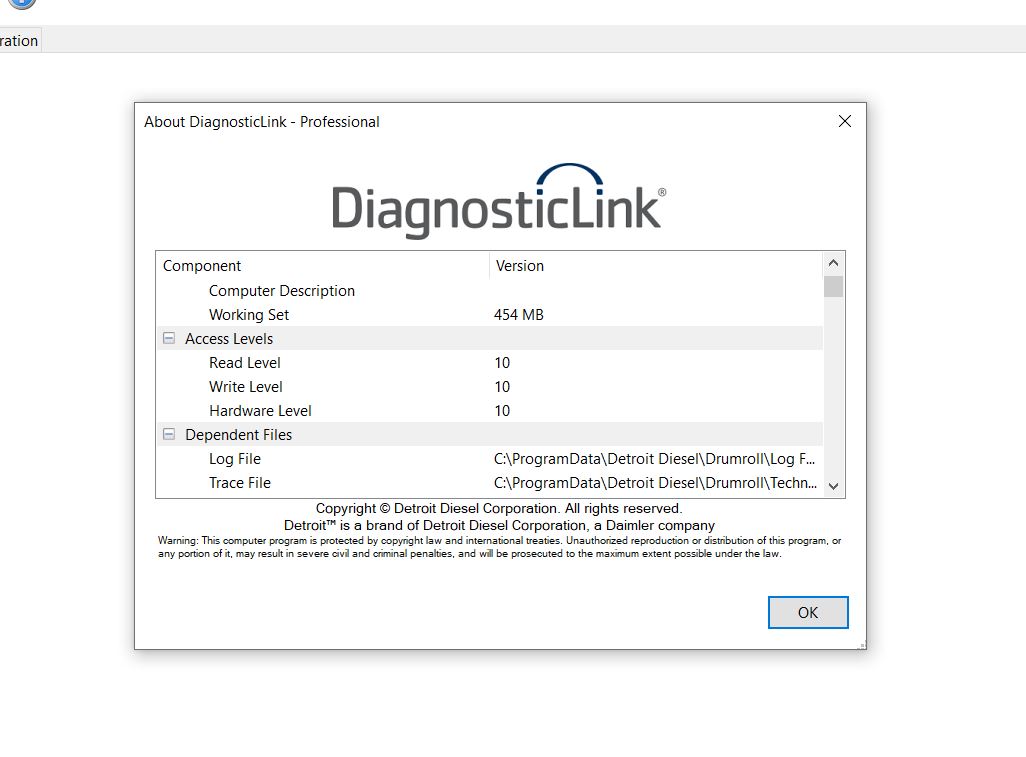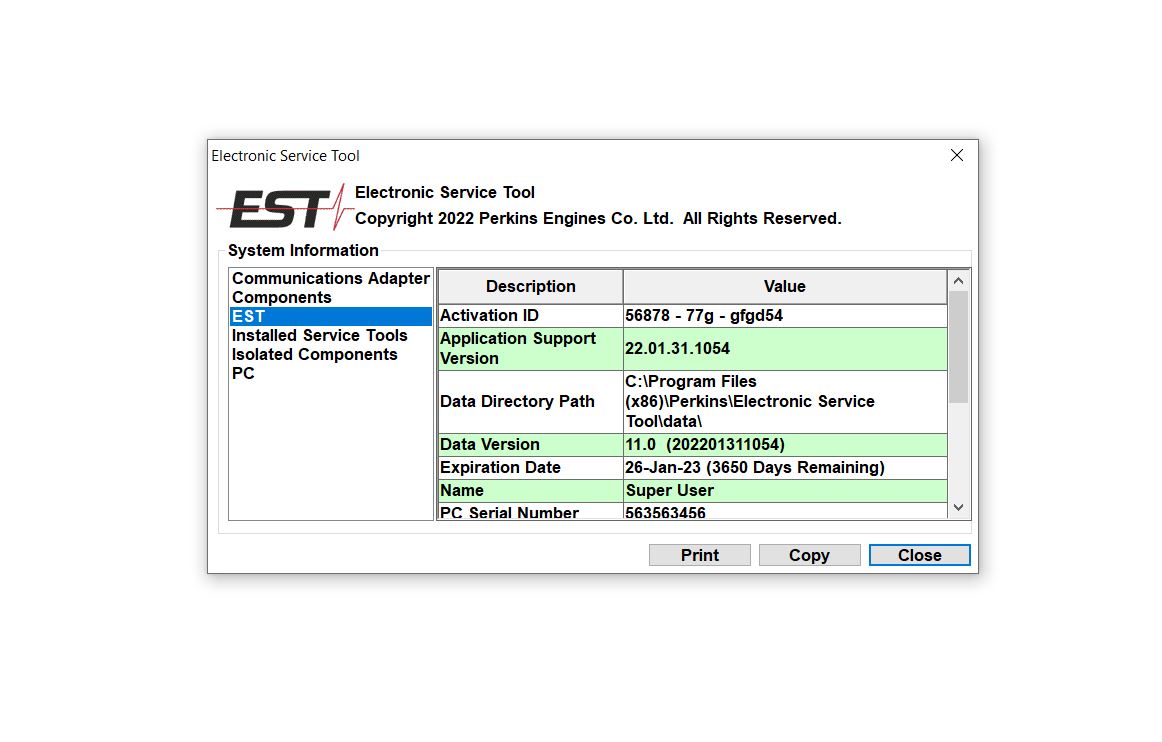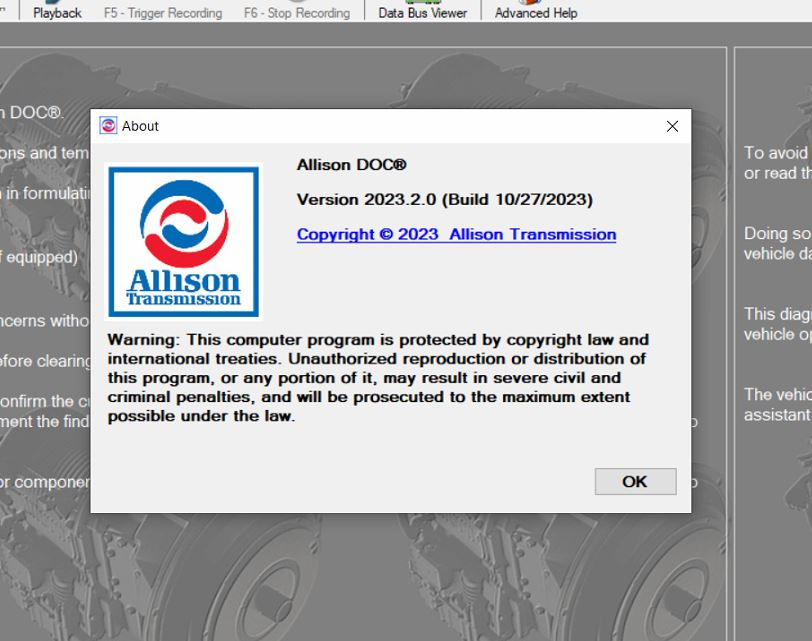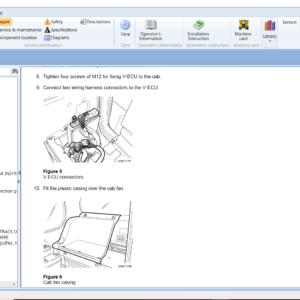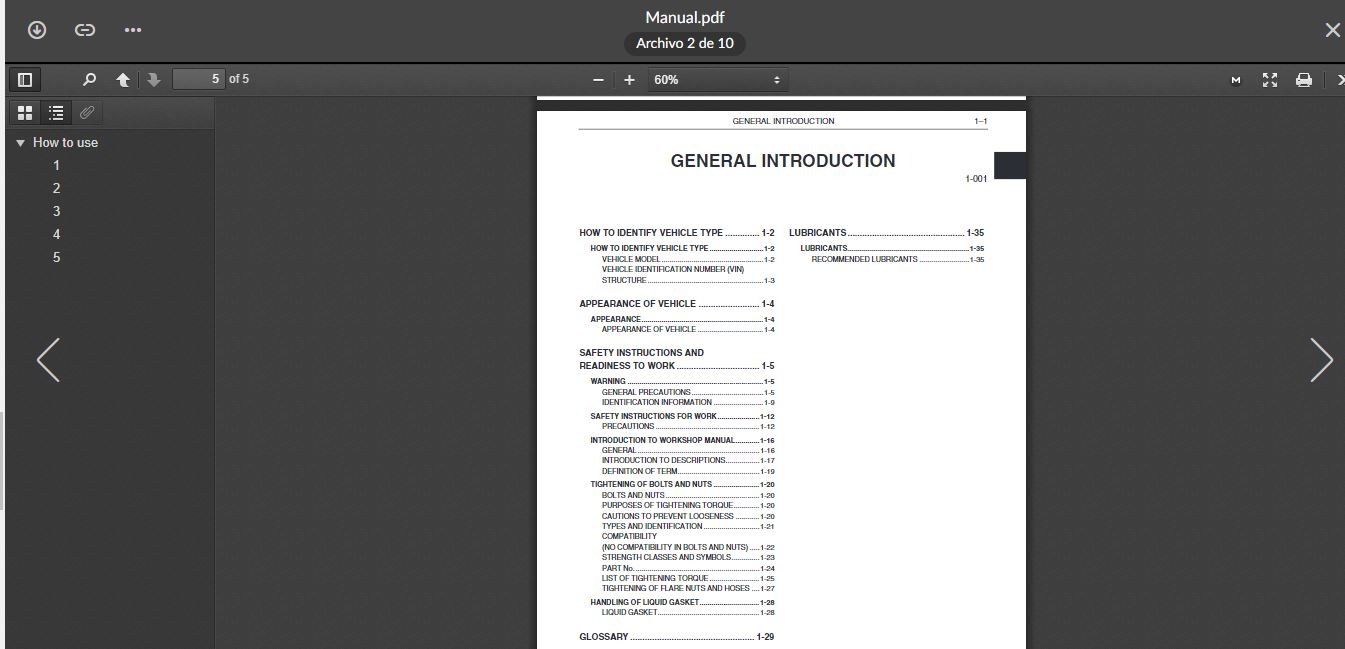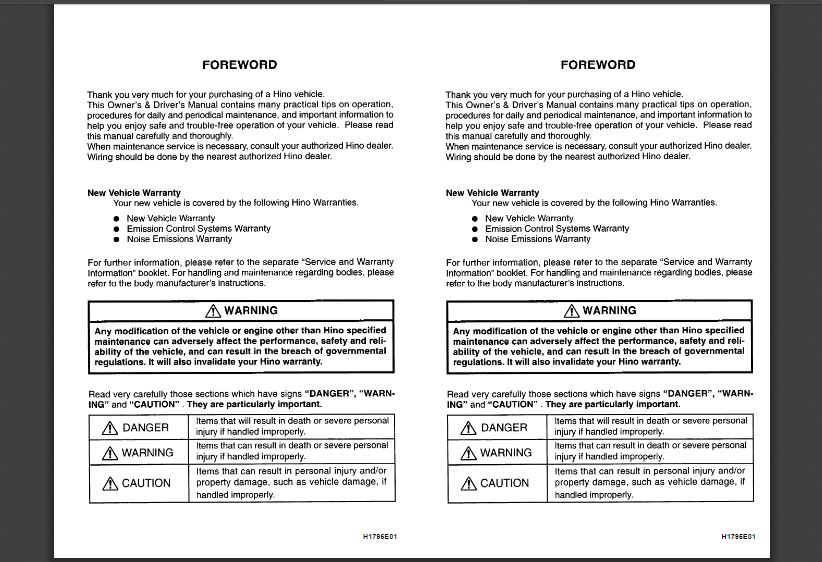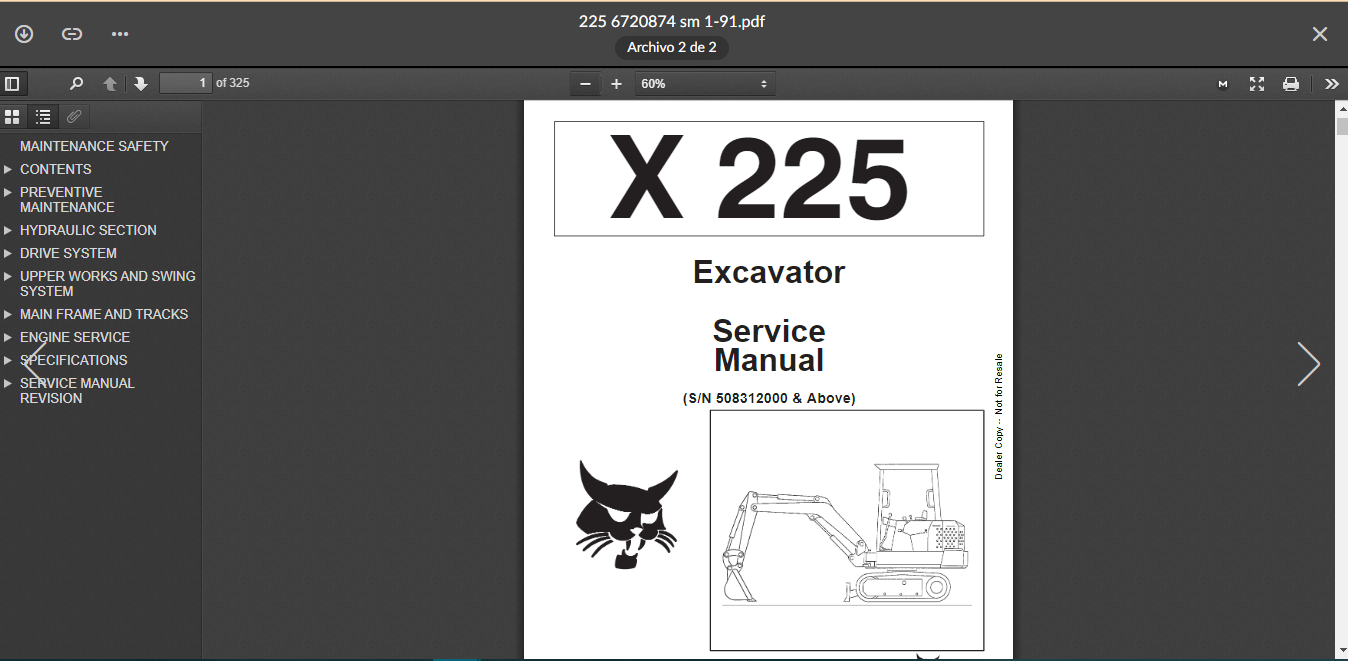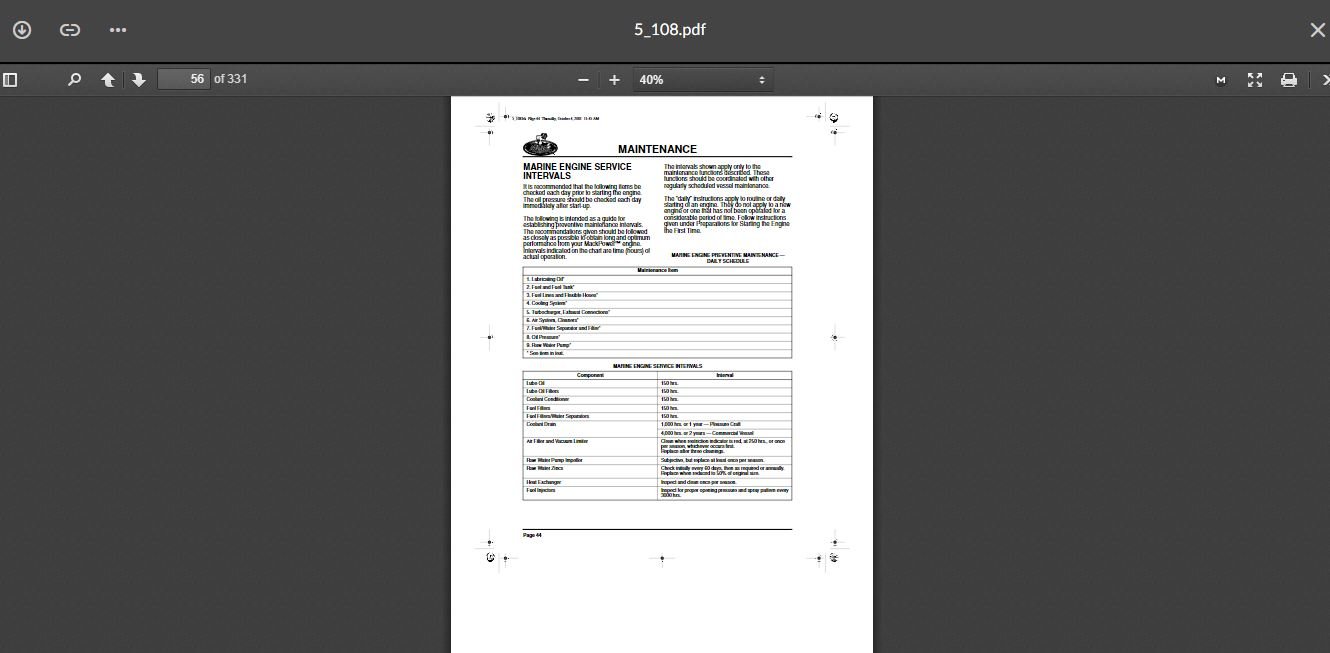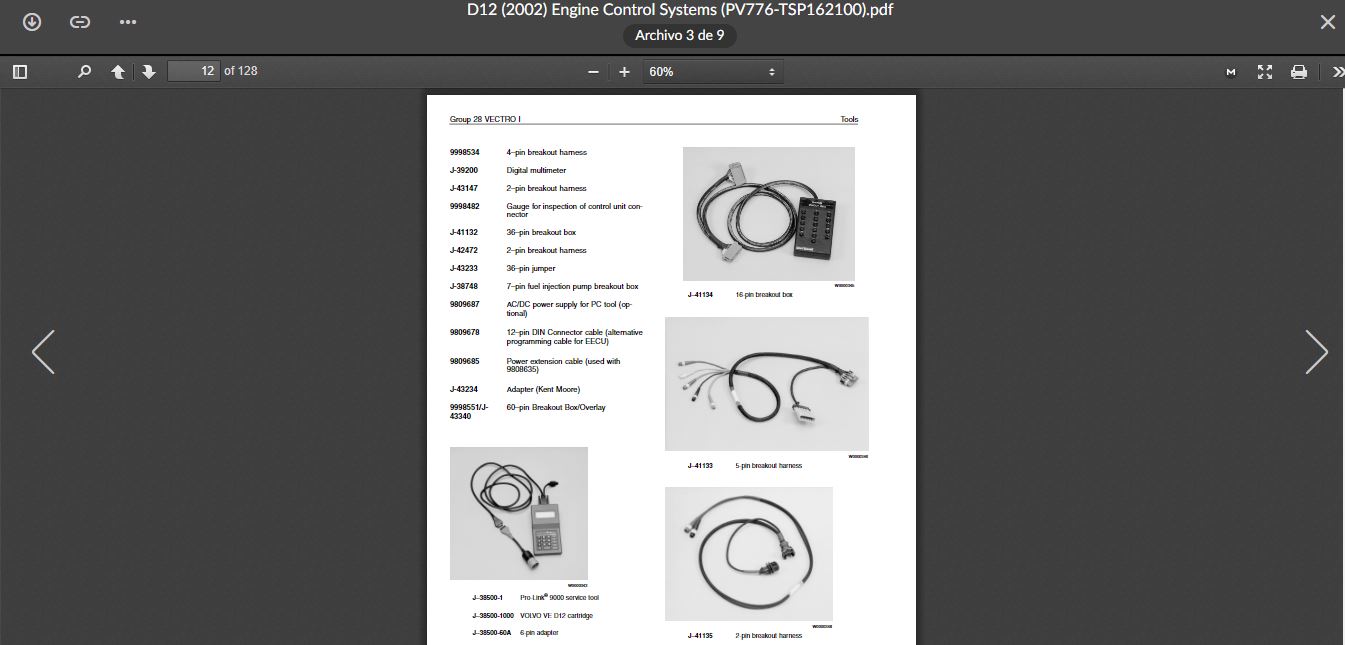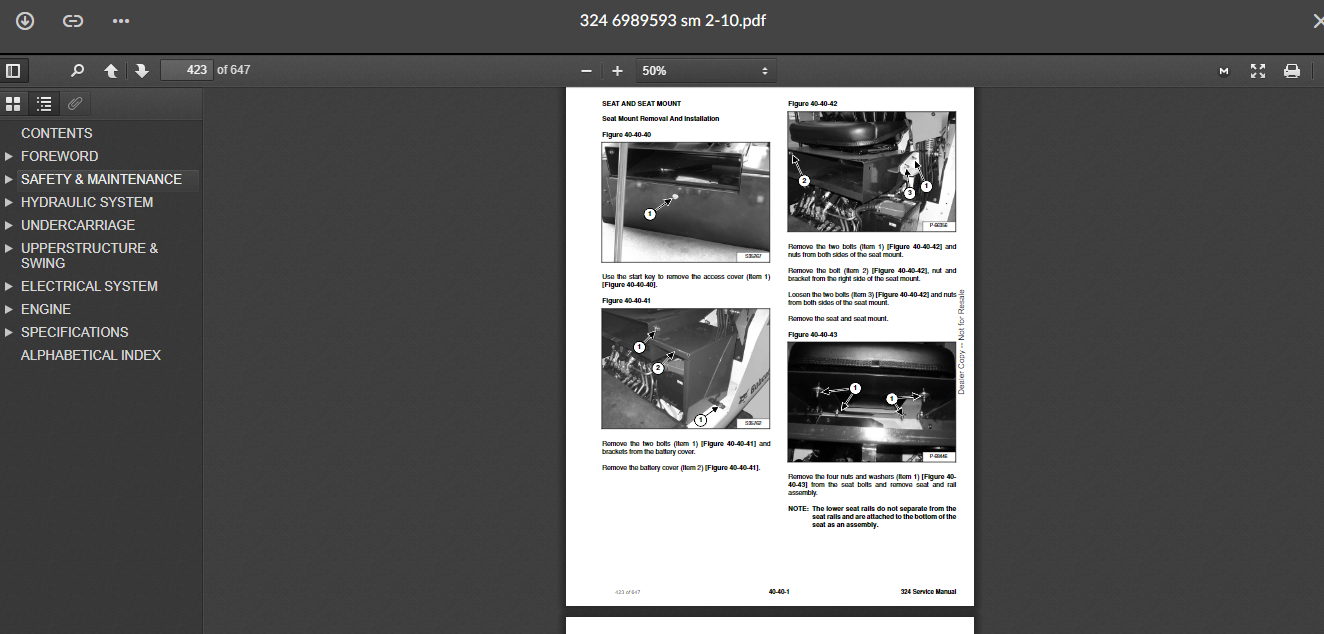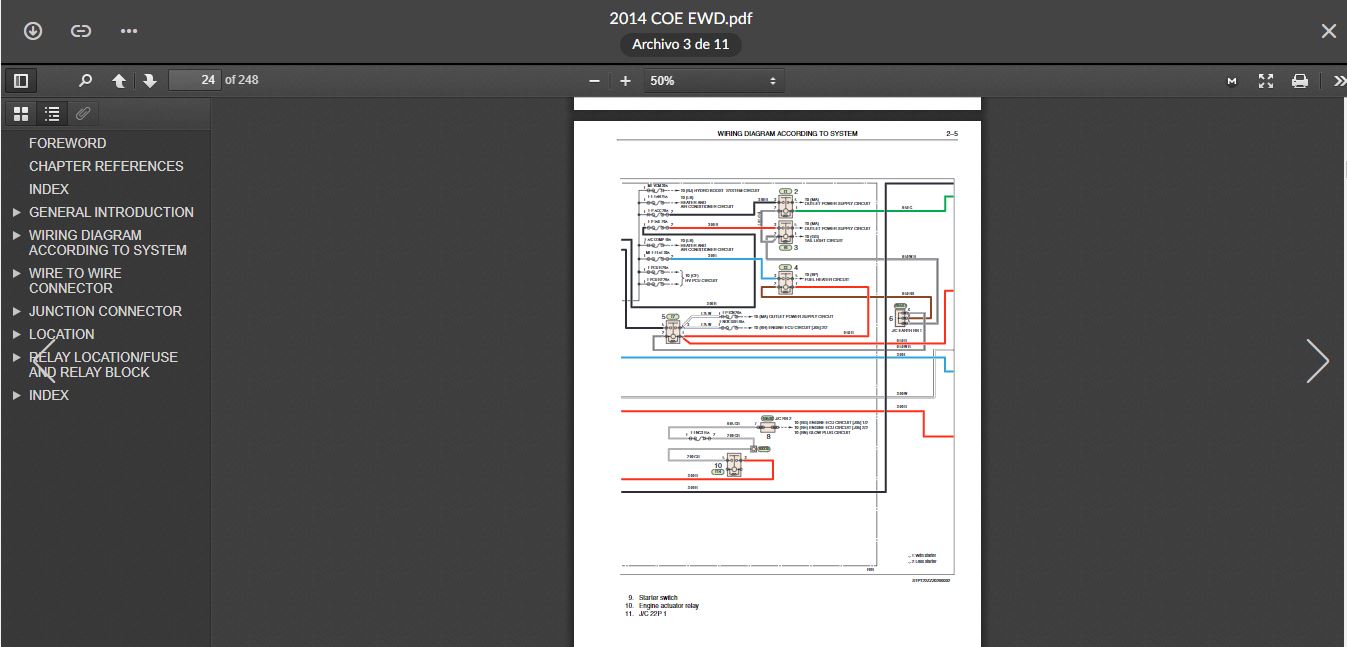Cummins X15 CM2450 X124B (2018 & Newer) Fault Code: 6787 PID: SPN: 3610 FMI: 2/21 Aftertreatment 1 Diesel Particulate Filter Outlet Pressure Sensor – Data Not Rational – Drifted Low
Lamp:
None
Reason:
An offset in the diesel particulate filter outlet pressure sensor reading has been detected.
Effect:
Possible reduced engine performance.
Circuit Description:
The Engine Control Module (ECM) provides a 5 volt supply to the aftertreatment diesel particulate filter outlet pressure sensor on the sensor supply circuit. The ECM also provides a ground on the sensor return circuit. The aftertreatment diesel particulate filter outlet pressure sensor provides a signal to the ECM on the aftertreatment diesel particulate filter outlet pressure sensor signal circuit. This sensor signal voltage changes based on the pressure at the outlet of the aftertreatment diesel particulate filter.
Component Location:
The aftertreatment diesel particulate filter differential pressure sensor is mounted on the diesel particulate filter. It is a combination sensor that detects both diesel particulate filter differential pressure and outlet pressure.
Conditions for Running the Diagnostics:
This diagnostic consists of two parts:
1. One part runs when the keyswitch is initially turned ON before the engine is started.
2. The second part runs continuously while the engine is running.
Conditions for Setting the Fault Codes:
The Engine Control Module (ECM) detected the aftertreatment diesel particulate filter outlet pressure was greater than 1.5 kpa [0.22 psi] or less than -1.5 kpa [0.22 psi] at initial key ON, or was not changing with engine conditions.
Action Taken When the Fault Code is Active:
1. The ECM illuminates the amber check engine lamp and/or Malfunction Indicator Lamp (MIL) after the diagnostic fails on two consecutive trips.
2. Diesel exhaust fluid injection into the aftertreatment system is disabled.
3. Engine torque will be reduced if the engine is operated for an extended period of time with this fault active.
Conditions for Clearing the Fault Code:
1. To validate the repair using a diagnostic road test, utilize a route that incorporates both stop and go city type driving and steady state highway type driving. It may be necessary to load the unit for certain diagnostics in the ECM to run.
2. To validate the repair using a chassis dynamometer, utilize a routine that incorporates acceleration and motoring events, steady state highway type operation, and load. This will simulate normal driving and allow the diagnostics in the ECM to run.
3. Turn the key switch OFF and allow the ECM to completely powerdown.
4. To validate the repair, perform a key cycle and leave the key in the ON position for 2 minutes. Then start the engine and let it idle for 1 minute.
5. The fault code status displayed by the diagnostic tool will change to inactive immediately after the diagnostic runs and passes.
6. The ECM will turn off the amber check engine lamp immediately after the diagnostic runs and passes.
7. For On-Board Diagnostics (OBD) engines, the ECM will extinguish the Malfunction Indicator Lamp (MIL) after three consecutive trips where the diagnostic runs and passes.
8. The reset all faults command in the diagnostic tool can be used to clear active and inactive faults, as well as extinguish the MIL for OBD applications.
Shop Talk:
NOTE: It is possible to set this fault in a shop environment by performing a key cycle with the tailpipe connected to an exhaust ventilation system.
Possible causes of this fault code include:
1. Stuck in-range aftertreatment diesel particulate filter outlet pressure sensor reading.
2. High resistance in the aftertreatment diesel particulate filter outlet pressure sensor signal or return wires.
3. Higher than expected diesel particulate filter outlet pressure.
4. Excessive Diesel Exhaust Fluid (DEF) deposits in the aftertreatment decomposition tube.
5. Plugged aftertreatment outlet pressure sensor ports could cause this fault code if pressure is held in the port after the engine is turned OFF.
6. Frozen, plugged, or restricted aftertreatment DPF differential pressure sensor tubes.
Related
-
Bobcat Service Library [03.2019] Service, Operator, Maintenance, Bulletines, etc full update
Bobcat $110.00Rated 0 out of 5
-
CAT ET 2021A (Caterpillar Electronic Technician) + Factory Password (1 PC )
CAT $65.00Rated 0 out of 5 -
CAT CDVR PC Software – Caterpillar Digital Voltage Regulator (CDVR) WINDOWS 10
CAT $45.00Rated 0 out of 5 -
DOWNLOAD Paccar ESA Electronic Service Analyst 5.5.0 Diagnostic Software 2023
PACCAR $96.00Rated 0 out of 5 -
Volvo PROSIS Offline 2019 Parts Catalog Installation Service
Trucks software $45.00Rated 0 out of 5
Related products
-
Allison 1000 & 2000 Gen 4 Fault Codes: P0880 TCM Supply Voltage
1000 & 2000 Gen 4 $50.00Rated 0 out of 5 -
Allison 1000 & 2000 Gen 4 Fault Codes: P0872 Transmission Pressure Switch Solenoid E Circuit Stuck Closed
1000 & 2000 Gen 4 $50.00Rated 0 out of 5 -
Allison 1000 & 2000 Gen 4 Fault Codes: U0073 CAN Bus Reset Counter Overrun
1000 & 2000 Gen 4 $50.00Rated 0 out of 5 -
Allison 1000 & 2000 Gen 4 Fault Codes: U1000 Class 2 Loss of Serial Data Communication
1000 & 2000 Gen 4 $50.00Rated 0 out of 5 -
Allison 1000 & 2000 Gen 4 Fault Codes: P0848 Transmission Pressure Switch Solenoid D Circuit High
1000 & 2000 Gen 4 $50.00Rated 0 out of 5 -
Allison 1000 & 2000 Gen 4 Fault Codes: P1779 Engine Torque Delivered To TCM Signal
1000 & 2000 Gen 4 $50.00Rated 0 out of 5 -
Allison 1000 & 2000 Gen 4 Fault Codes: U1301 J1850 (Class 2) Serial Data Communication Link Low
1000 & 2000 Gen 4 $50.00Rated 0 out of 5 -
Allison 1000 & 2000 Gen 4 Fault Codes: P0873 Transmission Pressure Switch Solenoid E Circuit High
1000 & 2000 Gen 4 $50.00Rated 0 out of 5 -
Allison 1000 & 2000 Gen 4 Fault Codes: U0031 J1850 (Class 2) Serial Data Communication Link Low
1000 & 2000 Gen 4 $50.00Rated 0 out of 5 -
Allison 1000 & 2000 Gen 4 Fault Codes: P2771 Four-Wheel Drive Switch Circuit
1000 & 2000 Gen 4 $50.00Rated 0 out of 5 -
Allison 1000 & 2000 Gen 4 Fault Codes: P0870 Transmission Pressure Switch Solenoid E Circuit
1000 & 2000 Gen 4 $50.00Rated 0 out of 5 -
Allison 1000 & 2000 Gen 4 Fault Codes: P0846 Transmission Pressure Switch Solenoid D Circuit Stuck Open
1000 & 2000 Gen 4 $50.00Rated 0 out of 5 -
Allison 1000 & 2000 Gen 4 Fault Codes: P2810 Solenoid G Electrical
1000 & 2000 Gen 4 $50.00Rated 0 out of 5


